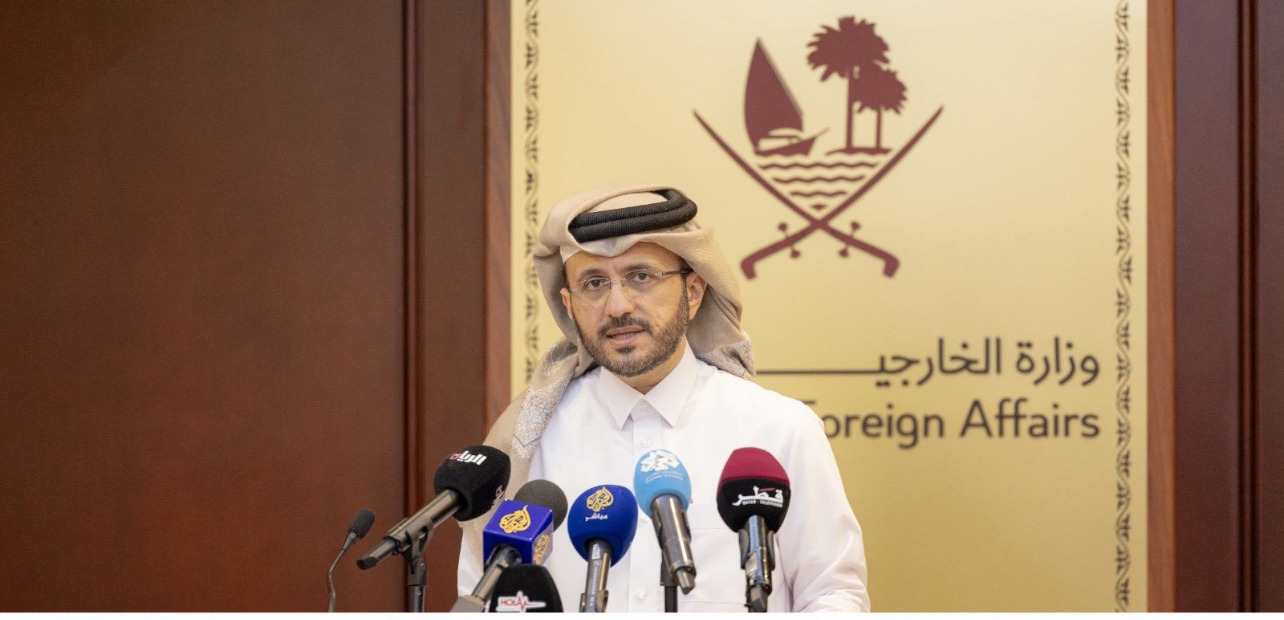The comments by the Qatari Foreign Affairs spokesperson come as the Gulf state continues indirect mediation efforts between Israel and Hamas.
Majed Mohammad Al Ansari, the spokesperson for the Qatari Ministry of Foreign Affairs, said that there has been no new developments in the mediation efforts between Israel and Hamas concerning a prisoner exchange and ceasefire.
During his weekly press briefing, Al Ansari told reporters that despite the stalemate, mediatory efforts are ongoing.
“We are in favour of ending the war and returning all those affected to their homes. Our priority in Qatar is to halt this conflict and ensure that it comes to a permanent end,” the Qatari Foreign Ministry spokesperson said.
“It is important to hold the Israeli occupation accountable for the crimes it is committing in the Gaza Strip,” Al Ansari added.
He also noted that Qatar’s Prime Minister and Minister of Foreign Affairs Sheikh Mohammed bin Abdulrahman Al-Thani might meet U.S. Secretary of State Antony Blinken in New York on the sidelines of the UN General Assembly meetings later this month.
On Monday, Qatar condemned Israel’s actions against the Palestinian people as “genocide,” describing them as a serious decline in international relations and “the absence of the rule of law”.
Ahmed bin Hassan Al Hammadi, the Secretary-General of the Ministry of Foreign Affairs, made these comments before the 68th session of the International Atomic Energy Agency’s (IAEA) annual General Conference held in Vienna.
Al Hammadi, who is also the Qatari Governor of State to the IAEA, called for joint efforts to uphold the rule of law.
As Israel’s relentless conflict in Gaza marks its 348th day, the United Nations Office for the Coordination of Humanitarian Affairs (UNOCHA) reported on Monday that from October 7 to September 16, at least 41,226 Palestinians have been killed and 95,413 injured.
The UNOCHA report highlighted that the so-called Israeli evacuation orders, which lack provisions for safe and sufficient accommodations for displaced Palestinians, are exacerbating the humanitarian crisis.
International humanitarian law calls on warring parties to minimise harm to civilians and civilian targets, such as homes, schools and hospitals. However, UNOCHA reports that at least 85 percent of the Gaza Strip’s school buildings have either been directly hit or damaged.
Furthermore, over 60 percent of residential buildings have also sustained damage, in addition to 130 ambulances being targeted since October 7.
The Qatari envoy to the IAEA reiterated the Gulf state’s stance on the urgency for a lasting ceasefire to be reinstated and for the establishment of an independent Palestinian state.
Also on Monday, Egypt’s Foreign Minister Badr Abdelatty said that Cairo will continue to work cooperatively with Doha and Washington for joint ceasefire efforts.
According to Egyptian news outlet Al Masry Al Youm, Abdelatty condemned the escalating tensions in the occupied West Bank. The United Nations’ humanitarian office reports that Palestinian casualties, injuries and settler violence reached peak levels over the past year.
“The continuing Israeli violations and acts of aggression not just in the Gaza Strip but in the West Bank and occupied East Jerusalem will lead to more escalation that might plunge the region into a world war,” Abdelatty said.







